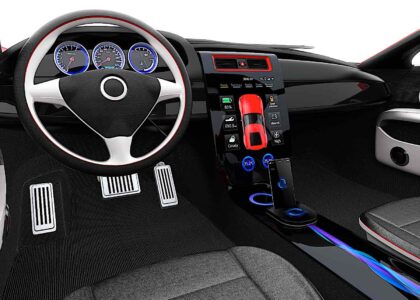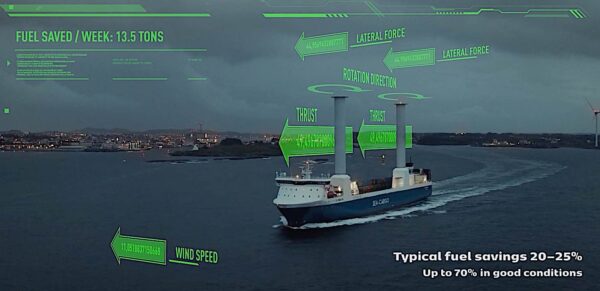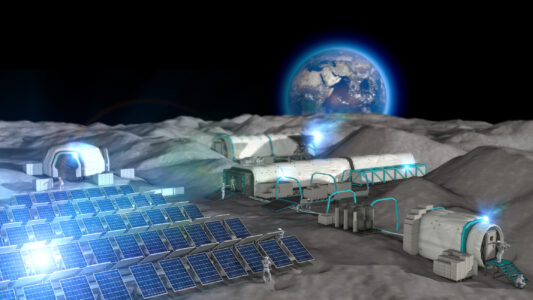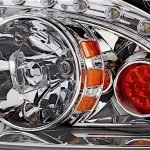Dethleff’s brilliant new RV may be electric, but it doesn’t need to be plugged in. It fuels up entirely with the sun and keeps refuelling as it runs down the road.
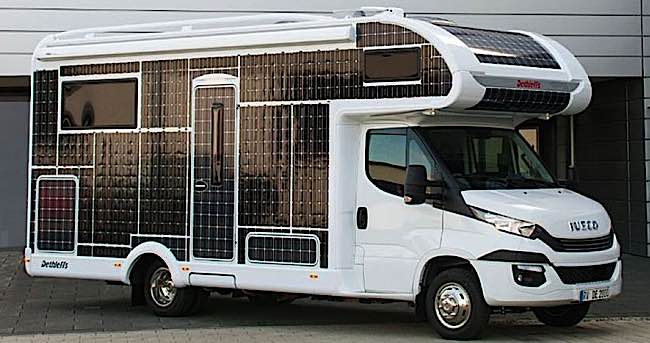
In America — where the average fuel economy for small RVs runs under 10 miles per gallon— and where the RV road-trip is a passionate past-time, Dethleff may have a winner, particularly for those long trips across western states with lots of sunshine. Actually, the vehicle is made and marketed from Germany, but it’s certain to be a winner in North America.
e.home — no fuel, no charging stations
Even if you could design a fully electric plug-in RV, who would want to? It would take so long to charge, and would probably only run for less than 100 miles, at most. Enter Dethleff’s “e.home“, which not only runs the engine from solar electric, it also can run the appliances for day-to-day living. You can charge it, like any electric car, but you wouldn’t necessarily need to. And, certainly, once you’re on the open road, as long as it’s daylight, you can probably just keep running — passing all the gas stations on the highway. The versatile range is due to the large amount of exposed body-work in an RV — where there is a lot of space for solar panels.
“By implementing a fully electric powertrain there are many challenges and equally opportunities for the entire vehicle,” said Dethleff’s Managing Director Alexander Lepold. “One significant opportunity is to do without any additional type of energy sources for the vehicle. This means that a motorhome with electric drive will also supply all the onboard services with electricity for the living area instead of gas, for example – and that is why solar power production becomes very important.”
Needless to say, an RV needs a lot of power. Running a 107 HP electric motor, the solar powers on e.home can make 3000 watts of electricity, charging a sizable 228-Ah battery. The e.home is covered — nearly every square inch — in flexible solar cells, and incorporates solar charge controllers, inverter/chargers and lithium batteries. Windows also feature darkening film and a heat-capture system that stores heat for release during cooler evenings.

















